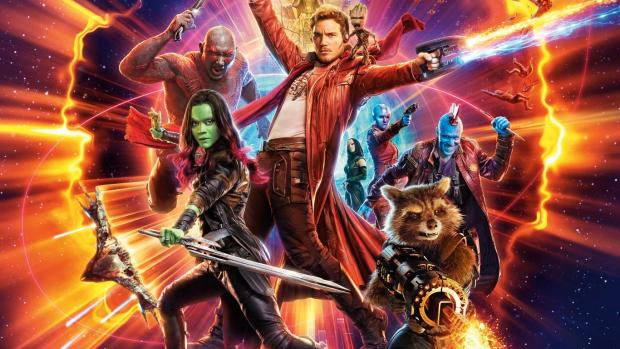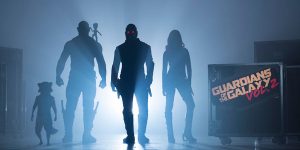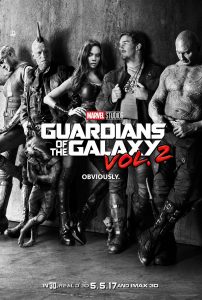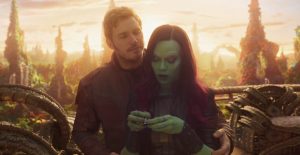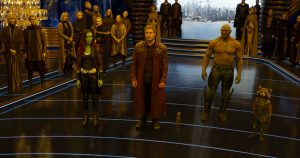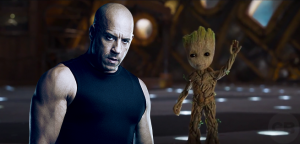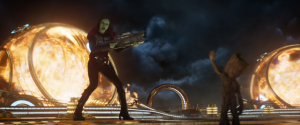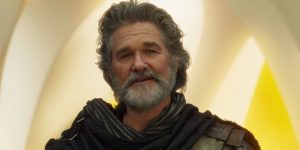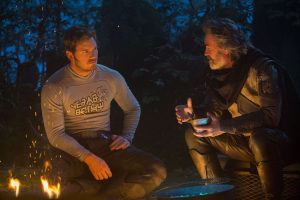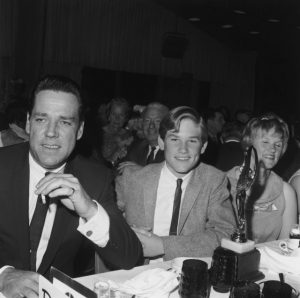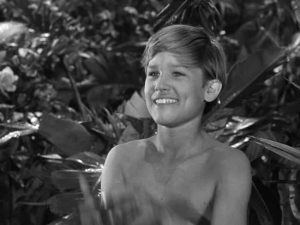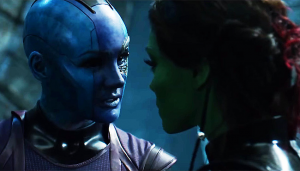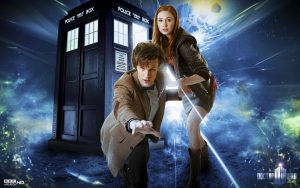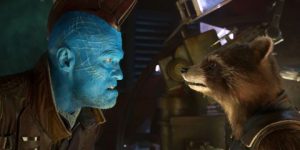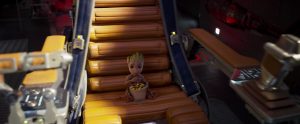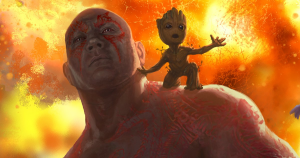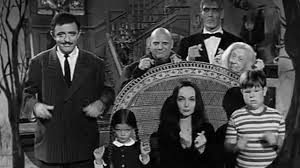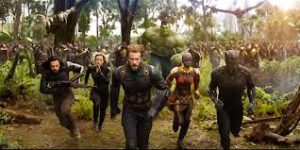
SHORT TAKE:
Amazing Part One of the two part Marvel culmination of 10 years, 19 movies, and 3.5 BILLION dollars spent exploring the Superhero Universe.
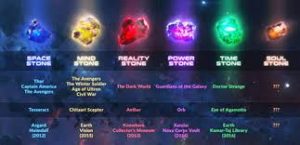
WHO SHOULD GO:
Anyone old enough to have seen the previous Marvel movies. There is no inappropriate sexual activity and the language is kept to a few mild profanities – with the exception of a "reference" to a raw word and "only" the first part of Samuel L Jackson’s now "signature" choice of obscenity. There is a LOT of cartoon violence, with some sudden and brutal deaths of humanoids but without any graphic displays of gore. There ARE some gory deaths but of monster "critters". So roughly, "tweens" and up – but parents, please, check it out yourself before taking the younger and those especially sensitive to emotional scenes.
LONG TAKE:
First, did you know that EVERYONE on the planet could live in Texas? If you want to know why I ask that, read through to the latter part of this review.
SPOILER FREE PORTION:

The premise is that all of the super heroes from the Marvel Universe assemble to fight a Universe-sized threat, Thanos, played by Josh Brolin. 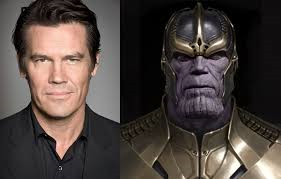 Brolin's villain gives as good as he gets.
Brolin's villain gives as good as he gets. 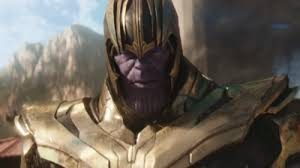 His is not a caricature but a legitimate character with his own motivations and goals. Brolin is an excellent actor, featuring not only here but as
His is not a caricature but a legitimate character with his own motivations and goals. Brolin is an excellent actor, featuring not only here but as 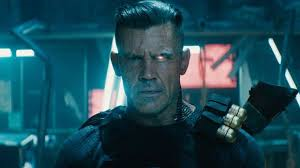 Cable in another upcoming Marvel movie, Deadpool 2, from what has been "dubbed" the R (for R rated) Marvel division. Just for the record, my favorite of Brolin's roles has nothing to do with Marvel, but is a Cohen Brothers movie – Hail Caeser!, the loving homage comedy about the '50's and '60's era Hollywood.
Cable in another upcoming Marvel movie, Deadpool 2, from what has been "dubbed" the R (for R rated) Marvel division. Just for the record, my favorite of Brolin's roles has nothing to do with Marvel, but is a Cohen Brothers movie – Hail Caeser!, the loving homage comedy about the '50's and '60's era Hollywood. 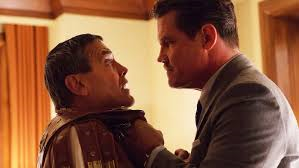 In Hail, Caesar! Brolin plays a faith filled decent man simply trying his desperate best to keep the studio for which he works from self destructing. In Infinity War Brolin's role is quite the opposite on all points.
In Hail, Caesar! Brolin plays a faith filled decent man simply trying his desperate best to keep the studio for which he works from self destructing. In Infinity War Brolin's role is quite the opposite on all points.
Avengers: Infinity War is NOT your average Marvel movie. 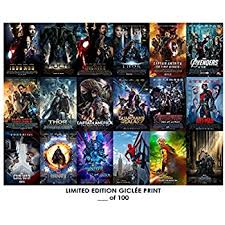 This is an extraordinary achievement and a unique historic cinematic accomplishment. This studio has invested ten years, and billions of dollars to fund 19 movies all revolving, like a galaxy unto itself, around this centerpoint in which most every major hero and several villains who have graced a Marvel movie appears.
This is an extraordinary achievement and a unique historic cinematic accomplishment. This studio has invested ten years, and billions of dollars to fund 19 movies all revolving, like a galaxy unto itself, around this centerpoint in which most every major hero and several villains who have graced a Marvel movie appears.
Because I am a BIG fan of superheroes, I could never tell which was Marvel and which DC. My kids were constantly chiding me for getting them confused. Not any more. Aside from 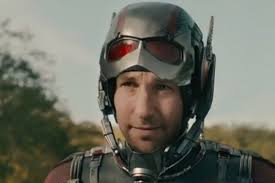 Antman and
Antman and 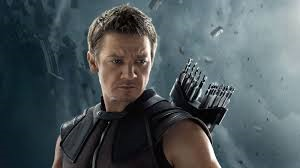 Hawkeye, who are signed up for Avengers 4, pretty much every major and medium Marvel superhero you’ve seen in the last 18 movies is in this one. So if they are not in Infinity War, they are not Marvel.
Hawkeye, who are signed up for Avengers 4, pretty much every major and medium Marvel superhero you’ve seen in the last 18 movies is in this one. So if they are not in Infinity War, they are not Marvel.
This is also probably the most spoiler vulnerable movie I have ever reviewed – if not ever SEEN. 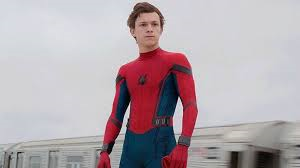 Tom Holland, who plays the most recent and the absolutely best incarnation of Spiderman, is notorious for giving away spoilers, so they had to send
Tom Holland, who plays the most recent and the absolutely best incarnation of Spiderman, is notorious for giving away spoilers, so they had to send 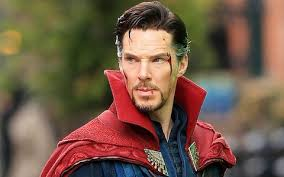 Benedict Cumberbatch (Dr. Strange) with him on the interview circuit to verbally intercept.
Benedict Cumberbatch (Dr. Strange) with him on the interview circuit to verbally intercept. 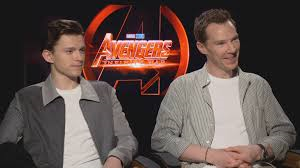 The interview I heard demonstrated this, as the interviewer asked Holland what it was like to work with the Guardians of the Galaxy group. As Holland opened his mouth, Cumberbatch jumped in with a good natured and comical set of static imitations and Holland snapped quiet immediately. You see, Infinity War takes place all OVER the galaxy.
The interview I heard demonstrated this, as the interviewer asked Holland what it was like to work with the Guardians of the Galaxy group. As Holland opened his mouth, Cumberbatch jumped in with a good natured and comical set of static imitations and Holland snapped quiet immediately. You see, Infinity War takes place all OVER the galaxy. 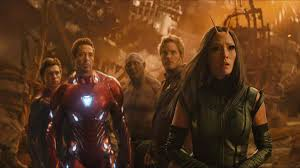 Different planets, different locales with different groups,
Different planets, different locales with different groups, 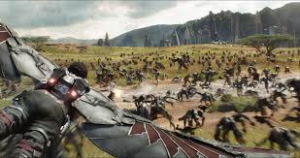 so even saying whether or not you were part of a group or made it to a particular planet could give away CRUCIAL details you don’t want to know before watching.
so even saying whether or not you were part of a group or made it to a particular planet could give away CRUCIAL details you don’t want to know before watching.
The special effects are spectacular. From the brightly lit super technology of 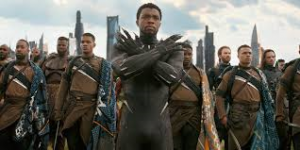 Wakanda, to the dark interiors of Thor’s Asgardian ship, from the humorous "body language" of Dr. Strange’s cape to the viciously feral attack "dogs" brought by Thanos’ henchmen, the details are lovingly layered and conveyed to manifest a beautiful, frightening, stunning and very believable world.
Wakanda, to the dark interiors of Thor’s Asgardian ship, from the humorous "body language" of Dr. Strange’s cape to the viciously feral attack "dogs" brought by Thanos’ henchmen, the details are lovingly layered and conveyed to manifest a beautiful, frightening, stunning and very believable world.
The acting is terrific. These characters, even and especially those who are later versions – like 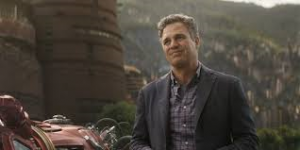 Ruffalo’s Banner/Hulk and Holland’s Spiderman – have truly made these characters their own. Newbies to the group like Boseman's T'Challa and Gillian's Nebula have fit in seamlessly. Others, like
Ruffalo’s Banner/Hulk and Holland’s Spiderman – have truly made these characters their own. Newbies to the group like Boseman's T'Challa and Gillian's Nebula have fit in seamlessly. Others, like 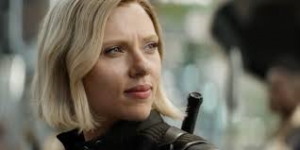 Johannson’s Black Widow and
Johannson’s Black Widow and 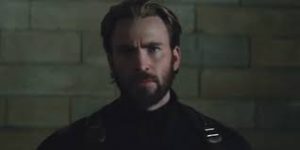 Evans’ Captain America, move in these skins so comfortably that, on screen, they ARE those characters – irreplacably …… at least for the next generation or two.
Evans’ Captain America, move in these skins so comfortably that, on screen, they ARE those characters – irreplacably …… at least for the next generation or two.  Most of these actors have been working on these Marvel films together for over 10 years.
Most of these actors have been working on these Marvel films together for over 10 years. 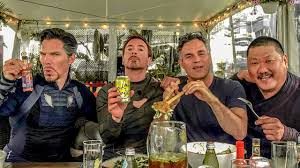 So when I say the chemistry amongst them comes very naturally and it seems as though they have known each other for a very long time, it is because they HAVE.
So when I say the chemistry amongst them comes very naturally and it seems as though they have known each other for a very long time, it is because they HAVE.
Downey’s Stark and 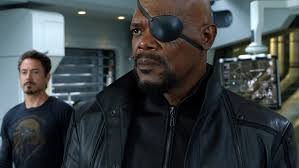 Jackson’s Fury, for example, go all the way back to the very first Marvel Easter egg in 2008's Iron Man.
Jackson’s Fury, for example, go all the way back to the very first Marvel Easter egg in 2008's Iron Man.
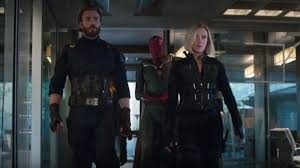 The interplay of emotions between the different dramatis personae have such long and complexly interwoven backstories that the actors now have the theatrical palette to approach every conversation with subtle intimacy of long acquaintance – like old married couples or childhood friends, college roommates or combat buddies – even if the couples have divorced or the friends have had a falling out.
The interplay of emotions between the different dramatis personae have such long and complexly interwoven backstories that the actors now have the theatrical palette to approach every conversation with subtle intimacy of long acquaintance – like old married couples or childhood friends, college roommates or combat buddies – even if the couples have divorced or the friends have had a falling out.
It’s not surprising that the quality of the writing is excellent because Christopher Mankus and Stephen McFeely’s pedigrees, between the two of them, include all three Captain Americas and the Narnia movies. 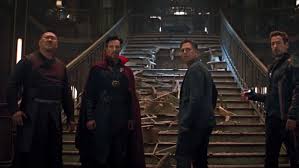 These are writers who know how to work with a large ensemble of characters, using intelligent, even heightened, language with
These are writers who know how to work with a large ensemble of characters, using intelligent, even heightened, language with 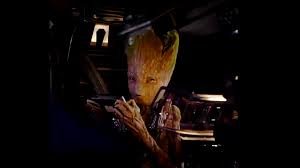 humor and a core sense of morality, instilling in their creations’ dialogues an irrefutable understanding of what is right and what is wrong.
humor and a core sense of morality, instilling in their creations’ dialogues an irrefutable understanding of what is right and what is wrong.
And since I have mentioned it – one of the things I think shines out beautifully in this script is the unspoken, undiscussed assumption that there IS a right and a wrong. 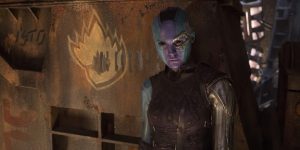 There are some points on which there IS no gray area – nor should be.
There are some points on which there IS no gray area – nor should be. 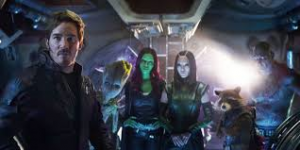 The heros in Infinity War do not really care about Thanos’ motivations, nor do they care to engage in an intellectually elite roundtable discussion on the pros and cons of his plan. They do not even care if Thanos is correct. All they know is that what Thanos is DOING is WRONG and evil. That there IS a good and bad in the Universe and that no amount of situational ethics or moral relativity can justify it. What Thanos wants to do is BAD, end of debate.
The heros in Infinity War do not really care about Thanos’ motivations, nor do they care to engage in an intellectually elite roundtable discussion on the pros and cons of his plan. They do not even care if Thanos is correct. All they know is that what Thanos is DOING is WRONG and evil. That there IS a good and bad in the Universe and that no amount of situational ethics or moral relativity can justify it. What Thanos wants to do is BAD, end of debate. 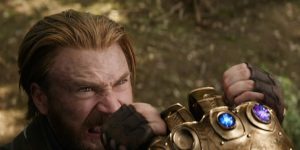 And they will do everything in their power to stop him. Because what he is trying to do is, prima facie, EVIL. They don’t even need to talk about it and it is not even brought up, but the rightness of the cause for which the heros fight is a constant background hum against which they measure their every conversation and every plan.
And they will do everything in their power to stop him. Because what he is trying to do is, prima facie, EVIL. They don’t even need to talk about it and it is not even brought up, but the rightness of the cause for which the heros fight is a constant background hum against which they measure their every conversation and every plan.
Some condemn super hero movies as formulaic or repetitive. But the moral compass with which these extraordinary and idealized men and women sail NEEDS to be reiterated, especially, now, as often as we have breath.
And, again, without spoilers, it shines through in our heroes. Revelations are to be had about Thanos’ plans and reasons behind them. 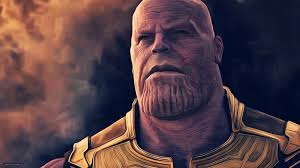 He is made an understandable, if not sympathetic character and his reasons, to him, seem logical. And if you want to know what they are and what Texas has to do with it – continue reading.
He is made an understandable, if not sympathetic character and his reasons, to him, seem logical. And if you want to know what they are and what Texas has to do with it – continue reading.
SPOILER – BUT ONLY OF THANOS’ MOTIVATION
Did you know that everyone on the planet could live in Texas?
To explain this I need to warn you of one spoiler – but ONLY A SPOILER OF MOTIVATION – not of what happens to anyone.
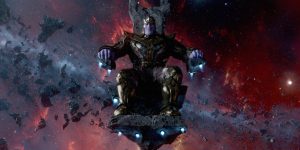 The battle plans of Thanos, the big blue bad guy hovering on a throne since the Easter Egg at the end of 2011's Thor, should be no surprise anyway – his very name means DEATH. Thanos plans to kill half of every sentient creature in the Universe. Why?! Because – he actually says – he thinks the Universe has finite resources.
The battle plans of Thanos, the big blue bad guy hovering on a throne since the Easter Egg at the end of 2011's Thor, should be no surprise anyway – his very name means DEATH. Thanos plans to kill half of every sentient creature in the Universe. Why?! Because – he actually says – he thinks the Universe has finite resources. 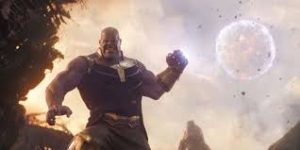 Therefore, he reasons that to allow half of the universe to live with "full bellies" and to keep the worlds from being over harvested, over mined, over used – half of everyone should be randomly chosen to die. He claims to have saved Gamora’s planet by doing this and that his planet of Titan was reduced to a lifeless waste because this was not done. He sees himself as a hero who the Universe will later thank.
Therefore, he reasons that to allow half of the universe to live with "full bellies" and to keep the worlds from being over harvested, over mined, over used – half of everyone should be randomly chosen to die. He claims to have saved Gamora’s planet by doing this and that his planet of Titan was reduced to a lifeless waste because this was not done. He sees himself as a hero who the Universe will later thank.
If this idea sounds familiar, it is because it should. It is in the mission statement of every population control, zero population growth, global warming, and pro-abortion organization that has crept in out of the cracks in our moral fabric over the last 100 years. The likes of The Sierra Club, Green Peace, Planned Parenthood, Zero Population Growth, many of the U.N. proposals, Stop Population Growth Now, Church of Euthanasia (shockingly it really is a thing), Center for Biologic Diversity, Captain Planet, and hundreds of others, were all either conceived or co-opted by people who would align themselves with the evilly misconceived (if you’ll excuse the pun) idea that ……human life is bad.
If you swallow the propaganda that there are "too many" people, then the logical conclusion would be to have fewer of them. This means either ones here should die (assisted suicide and Dr. Kevorkian), those that are sick or disabled should be denied assistance that would prolong their lives (eugenics/Hitler’s Holocaust, "death with dignity," 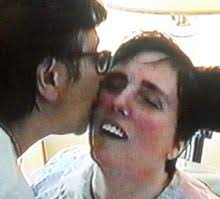 Terry Schiavo,
Terry Schiavo, 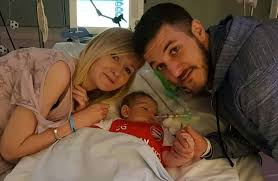 Charlie Gard,
Charlie Gard, 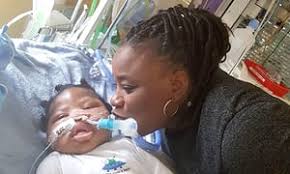 Isaiah Haastrup, and
Isaiah Haastrup, and  Alfie Evans – the latter four all murdered in either the U.S. or U.K. against their parents’ wishes because they were assessed by the courts as too inconvenient to live), or that future generations should be deliberately truncated (abortion and birth control).
Alfie Evans – the latter four all murdered in either the U.S. or U.K. against their parents’ wishes because they were assessed by the courts as too inconvenient to live), or that future generations should be deliberately truncated (abortion and birth control).
If you believe there are "too many" people on Earth, then you have to side with Thanos – so put on your subservient face and get your lottery ticket from him.
Thanos never considers the possibility that, even were what he says is true now, that the creativity and intelligence and energy of the amazing minds against whom he fights could be better used to find ways to feed and comfort multiple times the number of people in existence. The technology available a thousand years ago could feed and clothe and shelter only a tiny fraction of those we can feed and clothe and shelter now using the same resources. Everything from antibiotics to sprinkler systems to knowledge of crop rotation and hydroponics makes increased production a no brainer.
This, of course, begs the question that every human life is a valuable, irreplacable gift from God which must not be discarded no matter the rationalization for it. That the moral imperative of humans should be that innocent life must be protected.
This also disregards the fact that what has been proposed by these population control advocates is merely a global sized pile of what Harry Truman might only refer to in polite company as….manure.
But did you know that everyone on Earth could fit into Texas?
I’m going to throw some numbers at you to demonstrate this, but to give you an aim to where I am headed: Everyone on the entire planet Earth could theoretically live in families of four in houses four times as large as the average house in England and ALL still fit into the State of Texas?
The current Earth population is 7.6 billion. The State of Texas land mass is roughly 7.5 TRILLION square feet. If you placed the world population into groups of four people each, this would give you 1.9 billion groups. If you assigned the square feet out evenly amongst those groups, each group could have a minimum of 3,947 square feet to call their own.
The average sized plot of land on which a British home rests is the same size.  The average home in England is only 915 square feet.
The average home in England is only 915 square feet.  The average New York apartment high rise contains only 750 square feet.
The average New York apartment high rise contains only 750 square feet.  But without having to endure cramped high rise life, everyone could, theoretically, live in a Harry Potter-type suburban area like this real one shown here from a satellite photo of Barton Le Clay.
But without having to endure cramped high rise life, everyone could, theoretically, live in a Harry Potter-type suburban area like this real one shown here from a satellite photo of Barton Le Clay.
Support areas such as roads, hospitals, schools, stores, business areas, even recreation centers such as parks, hotels, restaurants, ice cream parlors, old fashioned libraries and community swimming pools could GENEROUSLY be accommodated by about nine times the area needed to accommodate the homes.
The tally of the world’s only needed suburban area plus the support structures could handily be fit into 2.7 million square miles.  There are 2.9 million square miles just in the lower 48 states of the United states.
There are 2.9 million square miles just in the lower 48 states of the United states.
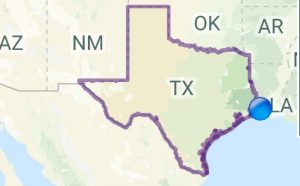 The world’s only suburb could be fit into Texas.
The world’s only suburb could be fit into Texas. 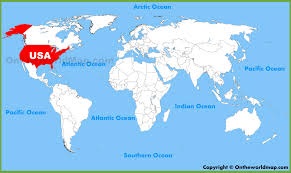 The world’s only city could fit over the contiguous portions of the U.S.A. with considerable room to spare.
The world’s only city could fit over the contiguous portions of the U.S.A. with considerable room to spare.
Keep in mind, were this to happen, the rest of the world would be completely and totally people free. India – uninhabited, China – zero, Russia – vacant, Europe – no one, England – empty, Australia – deserted.
This doesn’t EVEN take into account the possibility of ingeniously designed floating cities.
Of course, no one is suggesting we all move into the confines of the US. But to offer perspective, this World City could be fit into but 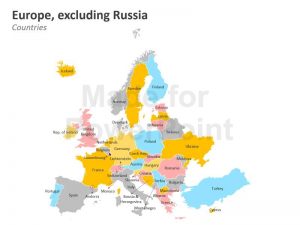 HALF of Europe.
HALF of Europe.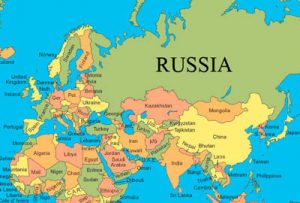 Or less than a third of Russia.
Or less than a third of Russia.  Or Australia, which is about the same size as the contiguous part of the U.S., WITH room to spare. And note how incredibly much land mass is left in the world – laughably vast stretches of thereby uninhabited areas would remain "people free" if we all just suburbed ourselves to Australia in neat little homes and their support buildings. The room we take up would be about 2.7 million square miles. The planet’s surface is 196 MILLION SQUARE MILES! 57 million is land mass.
Or Australia, which is about the same size as the contiguous part of the U.S., WITH room to spare. And note how incredibly much land mass is left in the world – laughably vast stretches of thereby uninhabited areas would remain "people free" if we all just suburbed ourselves to Australia in neat little homes and their support buildings. The room we take up would be about 2.7 million square miles. The planet’s surface is 196 MILLION SQUARE MILES! 57 million is land mass.
So – those who propose to eliminate any of our human brethren for the sake of global overpopulation are planning genocide on bad information.
IN CONCLUSION:
A profound question arises from a bunch of comic book characters in a brilliant analogy to a real life monstrous philosophy seeking to crush out human life – all for the sake of a lie.
So I ask you again as you go to see this brilliant best that Marvel has to offer – Are you 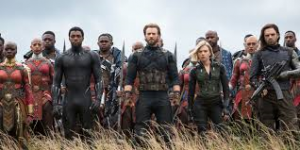 Team Avengers or….
Team Avengers or…. Team Thanos?
Team Thanos?
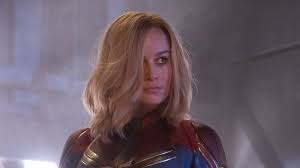 I finally figured out what bugs me about Captain Marvel. Not the movie, the character. The movie, as I pointed out in my post on Captain Marvel, is flawed but good and not really deserving of most of the negative hype it got. My problem is with the CHARACTER of Captain Marvel as it manifests itself, not just in the origin story, but in other movies as well – like Endgame.
I finally figured out what bugs me about Captain Marvel. Not the movie, the character. The movie, as I pointed out in my post on Captain Marvel, is flawed but good and not really deserving of most of the negative hype it got. My problem is with the CHARACTER of Captain Marvel as it manifests itself, not just in the origin story, but in other movies as well – like Endgame. Rocket’s acerbic comments in Guardians of the Galaxy,
Rocket’s acerbic comments in Guardians of the Galaxy, 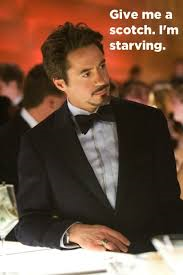 the sarcasm of Tony Stark, the
the sarcasm of Tony Stark, the 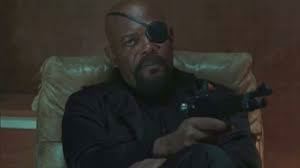 quips from Nick Fury and
quips from Nick Fury and  even the defensive banter from Marvel’s version of M.J.
even the defensive banter from Marvel’s version of M.J.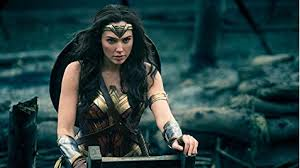 Wonder Woman was or
Wonder Woman was or  Black Widow’s will be (OK I’m just a teensy bit biased but B.W. is SUCH a great character).
Black Widow’s will be (OK I’m just a teensy bit biased but B.W. is SUCH a great character).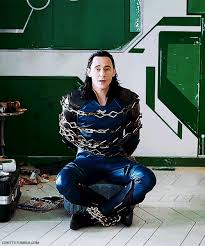 Loki, especially when they occasionally allow themselves to be the butt of humor.
Loki, especially when they occasionally allow themselves to be the butt of humor.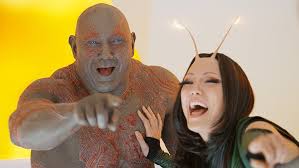 And yes, I DO mind that the character of
And yes, I DO mind that the character of 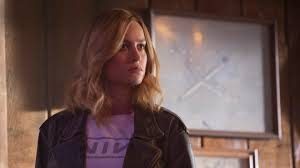 Captain Marvel HAS no sense of humor. That takes a bit of edge off of every scene she is in. BUT that is NOT what really BUGS ME!
Captain Marvel HAS no sense of humor. That takes a bit of edge off of every scene she is in. BUT that is NOT what really BUGS ME!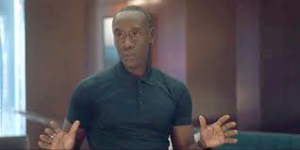 It suddenly occurred to me when lines of dialogue popped into my head from Avengers: Endgame which
It suddenly occurred to me when lines of dialogue popped into my head from Avengers: Endgame which 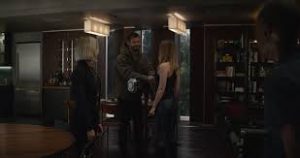 nailed her entire persona and shone a light on the major flaw with this character, which crops up in everything she does, everything she says and all of the relationships, or lack of them, she has with the other characters in this Marvel Universe. Danvers is talking to the group of grieving super hero survivors, and Rhodey, rightly, asks where she has been all this time (the last 5 years) and she replies: “There are a lot of other planets in the Universe. And unfortunately, they didn’t have you guys.”
nailed her entire persona and shone a light on the major flaw with this character, which crops up in everything she does, everything she says and all of the relationships, or lack of them, she has with the other characters in this Marvel Universe. Danvers is talking to the group of grieving super hero survivors, and Rhodey, rightly, asks where she has been all this time (the last 5 years) and she replies: “There are a lot of other planets in the Universe. And unfortunately, they didn’t have you guys.”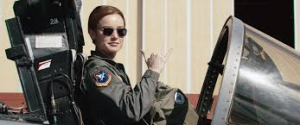 Danvers is from Earth. She was born in America and used to be American military. So she understands loyalty. But her comment, or lack of it, reflects a (literal and disturbing) “universitality” to her mindset; a comment that speaks volumes in what is unspoken about where her allegiances lie. Sure, she was brainwashed, but she remembered her best friend Maria and Maria’s little girl, so her memories were and are resurfacing.
Danvers is from Earth. She was born in America and used to be American military. So she understands loyalty. But her comment, or lack of it, reflects a (literal and disturbing) “universitality” to her mindset; a comment that speaks volumes in what is unspoken about where her allegiances lie. Sure, she was brainwashed, but she remembered her best friend Maria and Maria’s little girl, so her memories were and are resurfacing.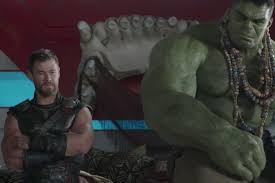 a vulnerability
a vulnerability  which every other character
which every other character 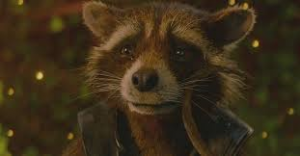 displays at one time or another – from Drax to
displays at one time or another – from Drax to 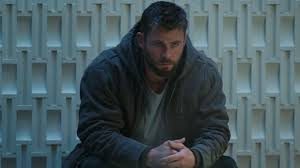 Thor. But not ice queen
Thor. But not ice queen 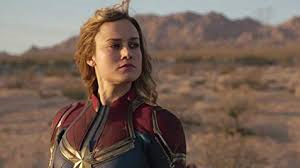 Captain Marvel and without it she is a two-dimensional cardboard cut-out.
Captain Marvel and without it she is a two-dimensional cardboard cut-out.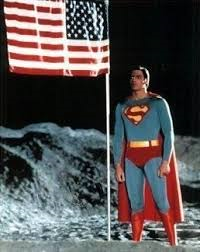 Superman, (D.C. but we’re talking creative writing and what works, not affiliation with a particular franchise), has endured (despite some admitted egregious mistakes) and is easy to like, in part because he has shown tremendous gratitude and affection to the species into which he was adopted. He’s not even FROM here and he protects Earth as owning a special place in his heart.
Superman, (D.C. but we’re talking creative writing and what works, not affiliation with a particular franchise), has endured (despite some admitted egregious mistakes) and is easy to like, in part because he has shown tremendous gratitude and affection to the species into which he was adopted. He’s not even FROM here and he protects Earth as owning a special place in his heart.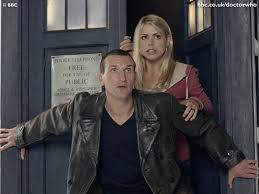 Dr. Who (again irrelevant to franchise or universe but only to the creation of character)
Dr. Who (again irrelevant to franchise or universe but only to the creation of character) 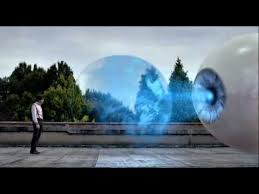 has declared dozens of times that
has declared dozens of times that 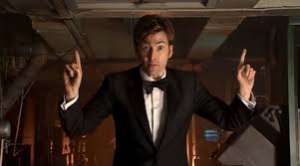 Earth is under his special protection – not just because he finds traits in humans that are noteworthy – our capability for great good, our resilience – but because we sheltered him in a time of need during the third doctor’s series.
Earth is under his special protection – not just because he finds traits in humans that are noteworthy – our capability for great good, our resilience – but because we sheltered him in a time of need during the third doctor’s series.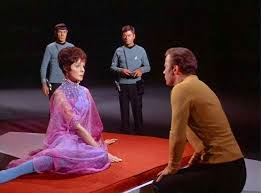 Those are the qualities that make a civilization worthy to survive.” Lai the Vian, “The Empath”.
Those are the qualities that make a civilization worthy to survive.” Lai the Vian, “The Empath”.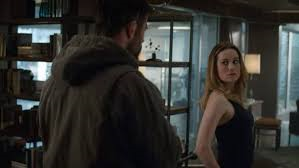 in her character in other movies, as it written by four women – Anna Boden, Geneva Robertson-Dworet, Nicole Perlman and Meg LeFauve – and one man – Ryan Fleck. (Reminds me of the aphorism self-describing the flaws in an unchecked raw “democracy”: that it is four wolves and one lamb deciding what to have for dinner. Poor Ryan.)
in her character in other movies, as it written by four women – Anna Boden, Geneva Robertson-Dworet, Nicole Perlman and Meg LeFauve – and one man – Ryan Fleck. (Reminds me of the aphorism self-describing the flaws in an unchecked raw “democracy”: that it is four wolves and one lamb deciding what to have for dinner. Poor Ryan.)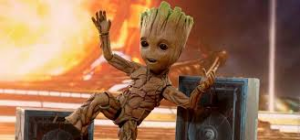 As a result I find Groot, a talking tree with a rather limited English vocabulary, far more admirable and far more relatable, not to mention lovable, than li’l Miss C. Marvel.
As a result I find Groot, a talking tree with a rather limited English vocabulary, far more admirable and far more relatable, not to mention lovable, than li’l Miss C. Marvel.

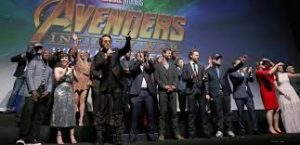
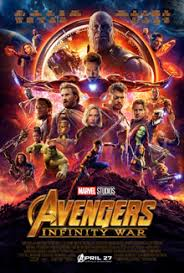
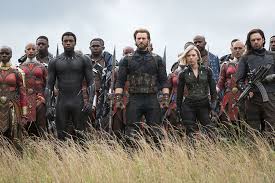
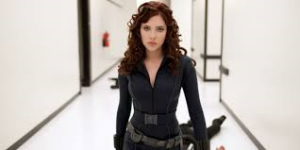
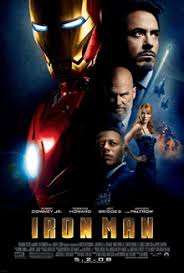
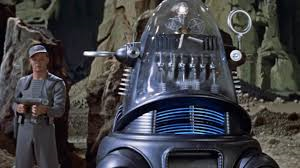
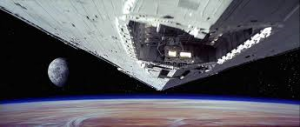
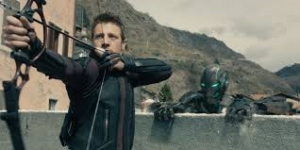
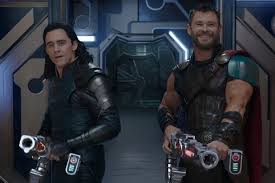
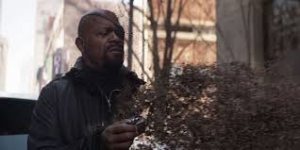



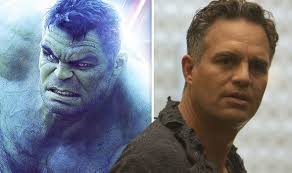


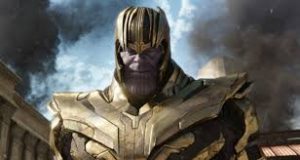
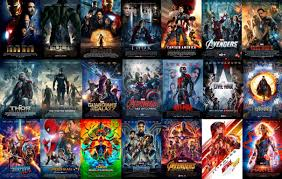
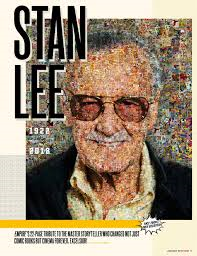
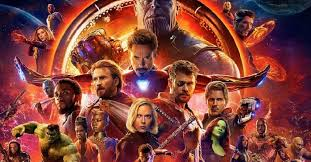



 Brolin's villain gives as good as he gets.
Brolin's villain gives as good as he gets. 





































 Or less than a third of Russia.
Or less than a third of Russia. 


